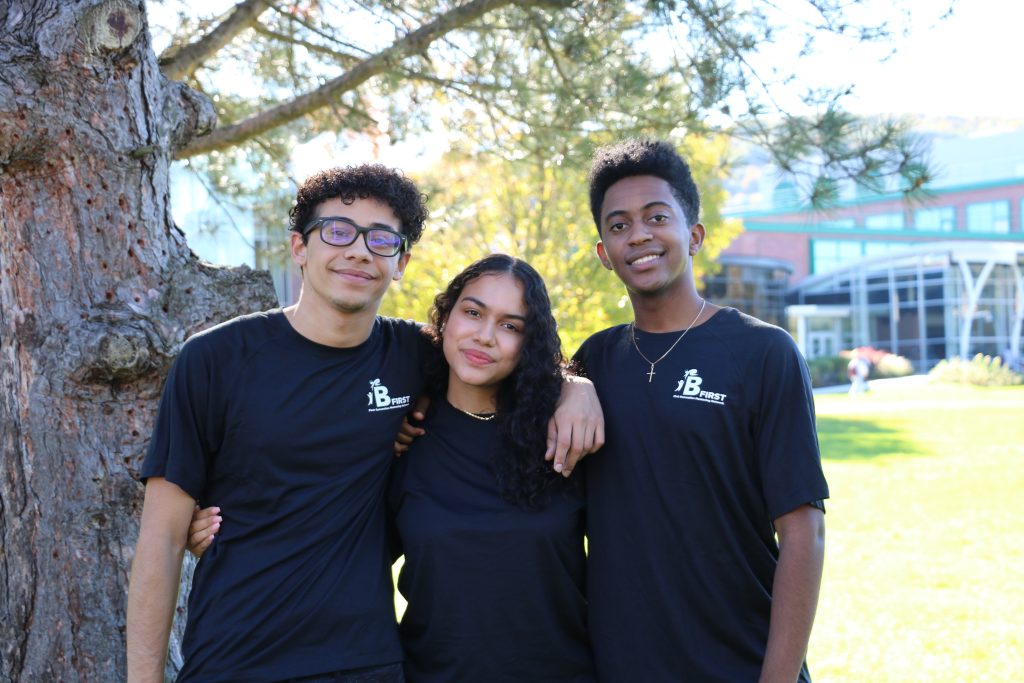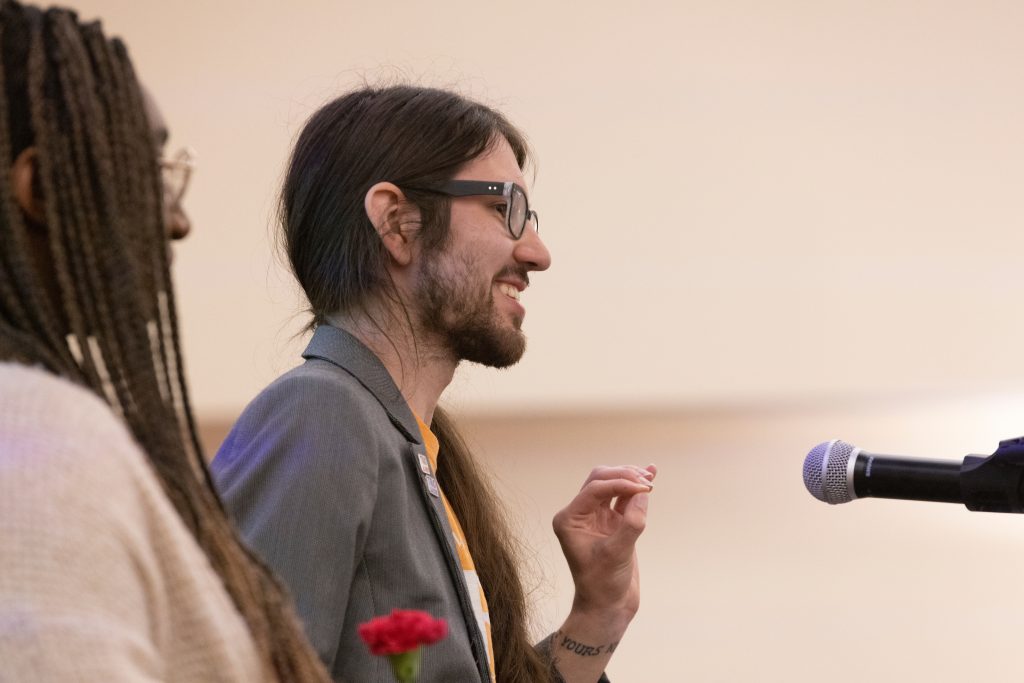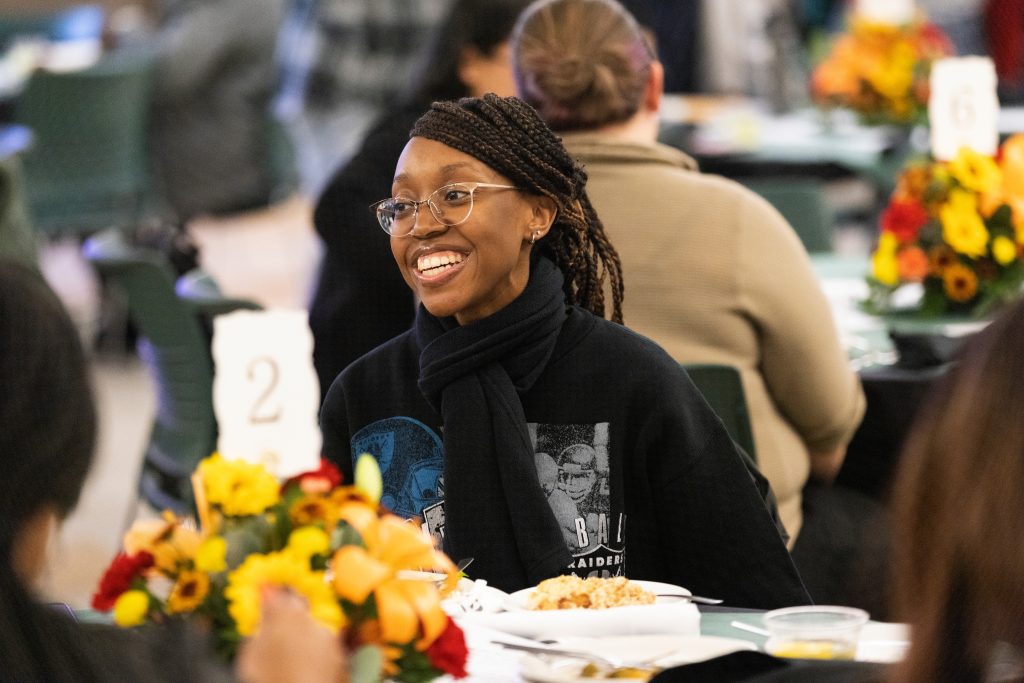Marissa Zelman, first-generation Binghamton alumna, Associate Director of the TRIO Student Support Services (SSS) Program at Binghamton University, and Chair of the BFirst Committee, sheds some light on what it means to be first-gen and invites you to join BFirst, Binghamton’s first-ever first-gen network.
What is BFirst, and how does it contribute to the upliftment of first-generation students on campus?
BFirst seeks to provide all first-generation (FG) college students of Binghamton University a true sense of belonging by connecting them to first-generation faculty, staff, alumni, and other first-generation college students and by providing spaces of inclusivity, understanding, and community. We create programming to:
-Connect FG college students with FG faculty, staff, alumni, and graduate student mentors.
-Educate and empower those who share the FG identity.
-Educate and provide resources to inform faculty, staff and administrators on how best to support FG students.
-Foster an inclusive campus community by spreading awareness about the FG identity.

What does it mean to be a First-Generation student?
First-generation (FG) college students navigate college with limited resources, the burden of being the first, and the strong motivation to succeed. We don’t know “the hidden curriculum” and just don’t know what questions to ask or where to start. At times, we may not feel smart enough; sadly, we may feel like we don’t belong here. We work hard to overcome these hurdles not experienced by many of our peers and truly benefit from mentorship and network building—especially with those who share our identity and relate to our experiences.
The FG identity is an invisible identity often unknown and endured silently, so BFirst seeks to change that! With 20-30% (depending on enrollment year) of Binghamton’s first-generation students, there are more FGs than folks often realize. In fact, many students don’t realize they themselves are FG until after speaking with us!
So, what does the term “first-generation” mean?
-It means neither of your parents or guardians with whom you live earned a baccalaureate degree or higher.
-It could mean your parents or guardians may have attempted to go to college, but dropped out.
-It could mean your parents or guardians did not go to college at all, or may not have graduated from high school or grade school.
-It could mean you are the first in your family to attend and graduate college, but it could also mean you have an older sibling who may have already attended or graduated college.
The definition of first-generation is a *bit* expanded upon, depending on who you talk to nationwide. BFirst seeks to be the *most* inclusive with its definition of FG, including:
-Students whose parents or guardians may have earned a degree in another country, and are either unable to help their student navigate the American educational system and/or unable to obtain a career in their educational field in this country.
-Students who self-identify as first-generation college student, as they lack support and guidance from their parents or guardians (even though one or both may have degrees)
In my experience advising students for TRIO SSS, you’d be surprised how many low-income (“on paper”, not first-generation) college students would fit the expanded definition of FG. For example, I’ve advised a student whose immigrant father drives taxi cabs, yet earned a science degree in another country. Then there’s the low-income student whose mother earned a Masters degree, yet actively discourages that student from going to college! Unable to find a well-paying job in her field, and financially struggling to repay her college loans, she just doesn’t want her child to make the same “mistake” of pursuing higher education. These students may have their parents or guardians on paper as degree-holders, but definitely lack that support and guidance that many of our Binghamton University students have back home. If you’re reading this and thinking this sounds like me, you’re not alone.

What advice do you have for first-generation students faced with challenges as they enter the workforce?
–Dare to be bold. Know that once hired, the first-gen identity follows you, but you have a unique perspective that should be shared. Have confidence in your ideas!
–Mentorship is lifelong. Once you enter the workforce, mentorship is not over for you. Connect with senior members of your team and ask questions to gain mentorship. Don’t forget those who’ve mentored you in the past either—their desire to help you doesn’t end when you graduate!
–Know your worth, and don’t settle! Based on my experiences working with TRIO SSS students post-grad, many FGs fear leaving their current employment because they lack the confidence and feel lucky to have “any job.” If you’re working in a toxic environment, make an exit strategy. Setting boundaries and learning to say “no” are great forms of self-care. Connect with previous mentors who can remind you of your worth and your long-term goals.
–We’re here for you, even after you graduate! Most FGs I meet with don’t know this, but you can absolutely connect with the Fleishman Center for Career and Professional Development, post-grad, as alumni. Check out your options here, under Alumni Services. It’s never too late to shift gears; lean on resources to get you to your new destination!
Are there any resources on campus that you recommend to first-generation students?
–Join our BFirst Network! To get invited to our events and connect with a mentor, complete our form here to get started.
–Use Mentor Match! Mentor Match is an online platform that hosts Mentor-and Mentee-created bio pages, allowing Mentees to select (based on survey matching percentages) their closest matches and make appointments with Mentors. Just be sure to tag yourself as first-generation! You can also filter your Mentor search by the first-generation identity too!
–Join opportunity programs! You can join TRIO Student Support Services (SSS) anytime, and can additionally join the Louis Stokes Alliances for Minority Participation (LSAMP), McNair Scholars Program, and the Collegiate Science and Technology Entry Program (CSTEP) at different parts of your academic journey, depending on your major and post-graduate plans.
–Don’t neglect your mental health! Trying to overcome imposter syndrome, FGs often take on an extraordinary amount of responsibilities to “prove” that they belong here, leaving little room for rejuvenation and healing. Sometimes, they must work multiple jobs to fund their own education, not to mention they may struggle with the stigma of mental health and/or a lack of understanding of its importance from back home. In addition to the University Counseling Center, check out these resources and explore some self-help literature here!

Feel free to reach out to BFirst at bfirst@binghamton.edu if you have any questions!
